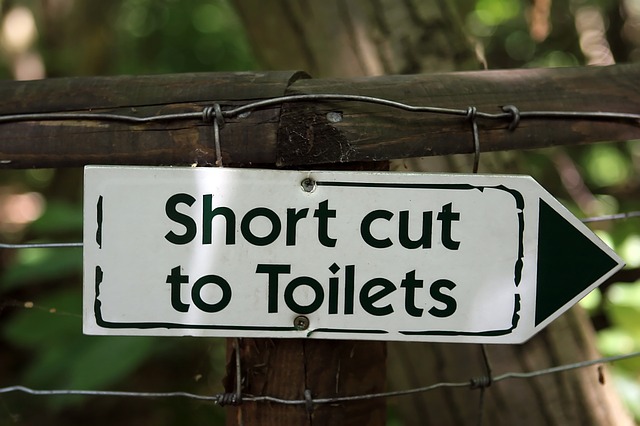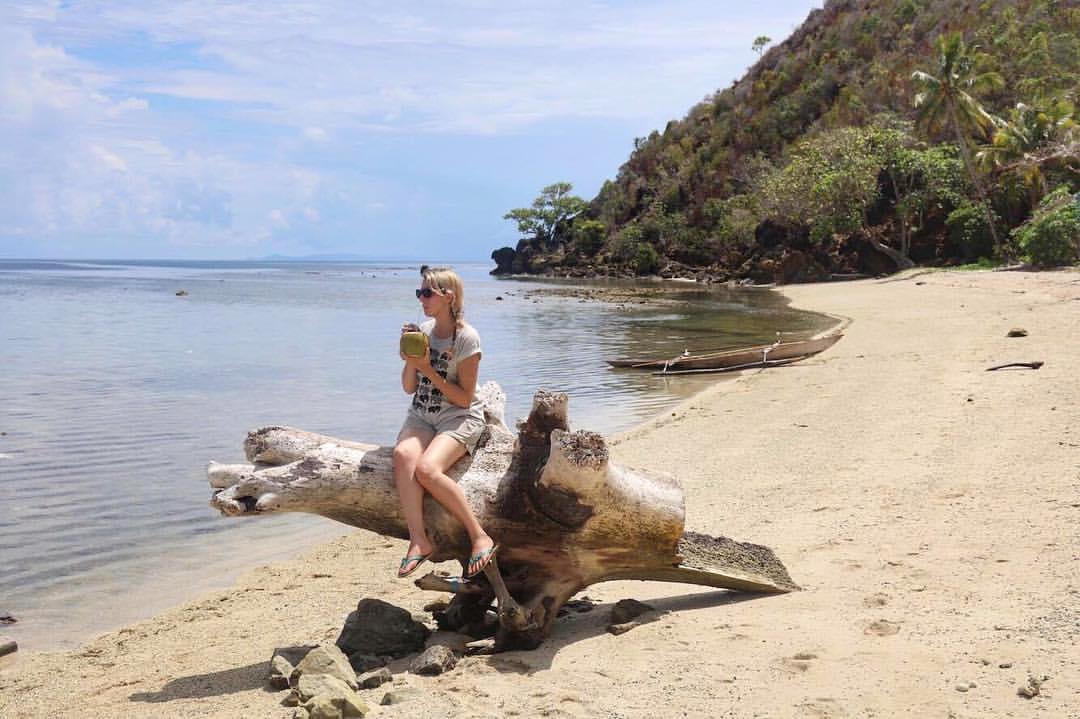Everybody poops. It’s a basic fact of life. And one of the more curious body functions that the average travellers spends far more time investigating then what any of us would like to admit. No matter how hardy a traveller you claim to be at some point in time you will fall victim to the dreaded travellers tummy. Or the runs. Bali Belly, Delhi Belly or whatever you’re comfortable with calling it. Really what I’m saying is that at some time in your travel life you will have a serious poop issue. For the sake of politeness and to save you anymore embarrassment we’ll refer to this condition as travellers tummy.
Digestive upsets are the most commonly reported travel illness. Especially when travelling to tropical destinations.
What is travellers tummy?
Travellers tummy is any situation where you have irregular, loose poo. Think of your basic loose poo to a sewer streaming out your backside. The condition can be mildly irritating and require you to spend a day in bed and close to the toilet to the full-blown holy poop I need a doctor.
What causes travellers tummy?
Many factors can cause travellers tummy in the average person. The most common isn’t food poisoning, instead, it can be put down to a simple change in location, diet and water quality. Remember that travel, especially long haul, is rather demanding on your body. Arriving at a new destination and devouring new food may give you a small, 24 hour case of travellers tummy. This is just your body adjusting the new bacteria in food, minerals in the water and the fact that you dragged it halfway across the world.
Food poisoning can easily happen when you’re on the road. Poor hygiene standards of both yourself and the person preparing food can be contributing factors. We love eating street food but have come unstuck before. A general rule we stick by is to eat hot food and in areas that are frequented by locals. A high turn over of food means that you’re less likely to get stale, fly blown food.

Dealing with travellers tummy.
As a general precaution, we generally let our bodies take care of travellers tummy for the first 24 hours by following these simple steps;
Avoid dairy, caffeine and alcohol. No coffee! A really basic diet of toast, applesauce, banana, plain rice and two minute noodles will help. With the two minute noodles make sure you drink the broth too! It’s a dead boring diet I know but from our experience, it does help calm the stomach and get things back to regular.
Avoid hard to digest foods. Certain grains are difficult on your stomach. If your body is trying to purge a foreign bug the last thing it needs is a corn fed diet. As well as heavily sugared drinks. Avoiding sports drinks and lemonade.
The World Health Organisation identifies DEHYDRATION as the most severe threat posed by travellers’ diarrhoea
Keep hydrated. Drink all the water. Replacing lost fluids and salts is the most important part of treating any watery diarrhoea, whatever the cause. We like to mix it up with a bottle of clean water and one bottle with an electrolyte added. Hydralyte is the brand we use as it comes in unique flavours and most importantly has the correct balance of things that your body will need.
Let nature take it’s course Only take a drug like lomitl or Gastrostrop on days that you are travelling. These drugs do block you up. Which is wonderful when you’re about to take a 12hr bus ride. However you don’t want to be popping these like they are vitamins. You don’t want the bacteria or other irritant to stew in your stomach and grow into a larger problem. Nor do you want to have a poo-plosion happen when you’re out and about.
Take a probiotic! Even when you’re not unwell. Your stomach may just need a little helping hand in taking care of you. Nowadays most probiotics don’t need to be refrigerated.
Also don’t forget to carry your own hand sanitizer and soft toilet paper. You can’t control what someone else does but you can try to keep the germs at bay after using public toilets, before eating and generally after a day of adventures.

When should you take antibiotics?
Just a note – we are not medical professionals! Just regular travellers who’ve been thrown the poop game a few too many times.
The time to take antibiotics is a very personal choice. Personally we don’t do it unless absolutely necessary and after consultation with a medical professional. The CDC advises against taking antibiotics, as these can cause more issues than not.
Different microorganisms cause different types of diarrhoeal illnesses, which may need to be treated in different ways. The most important things to look out for are: high temperature, blood in your poop and how severe the diarrhoea is, ie how often you have to go to the toilet.
Seek medical help for traveller’s tummy if:
Diarrhea is severe, bloody, or does not resolve within a few days
Diarrhea is accompanied by fever and chills
You are unable to keep fluids down to prevent dehydration.
If you are after medical advice whilst on the road, in a private manner, then we suggest getting in contact with our lovely friend Mike from the Bemused Backpacker, who runs an online travel clinic. Last year while travelling in Myanmar I came down with the worst travellers tummy I’ve ever had! After a few days of not travelling, not holding down food or water I consulted with Mike on the next steps. Which was to get myself to a doctor ASAP! In this case, I did need a course of antibiotics, as well as a second course and further testing when I returned home to Australia.
If in doubt ask for help.
Sadly somewhere along the road, there will be a time when the travellers tummy attacks you. Hopefully, by following the above steps you’ll be in better shape to slow down and take care of yourself. If in doubt please don’t hesitate to seek medical advice. In areas such as South East Asia travellers tummy can fastly turn into something a lot nastier. Many hostel and hotel staff members are well versed in these conditions and dealing with unwell guests. They may help you by providing electrolytes, monitoring your condition or calling in a medical team.
Seeking out help in these areas is a whole lot cheaper then what you might think.
And remember that this is all a part of the fun of travelling. Have you ever gotten yourself into a medical situation when travelling? Let us know in the comments below.


Jeanette
Founder, Principal Blogger & Coffee Drinker
Coffee Lover | Travel Blogger | Horse Rider | Adventure Racer | Donut Dame. Generally nice lady-enjoys wine, indie movies & random dance parties in my tent.
4 Comments
It’s 2025 and I think I’m back?
I wasn't sure that I would ever come back. That I would be here click clacking away at a laptop, putting random thoughts into words and throwing them out into the universe but heck, it's 2025 and here I am. There was a certain spark that had died for me here in this...
Travellers are some of the most financially savvy people you will ever meet.
Travellers are some of the most financially savvy people you will ever meet. Have you ever wondered how people afford to travel, invest & drink take away coffee?
The simplest way to explore Darwin
Darwin is the gateway to the top end of Australia. A place where you can go back in time or explore a growing city. The city has something for everyone, from sun-drenched beaches to bustling markets and vibrant nightlife.













Thank you so much for your Great advice.
Great advice! This happens to me all the time, so I’m glad to read about how to fix it.
Hear about it all the time – nice advice – tx!
Best travel advice I ever received was to always, always, ALWAYS pack Gastro-stop and hand sanitiser. They’ve both saved my arse (in more ways than one, HA!) on more occasions than I can count. I also supplement with a stash of wet wipes – not tummy-specific (though they can be useful for that), but the antibacterial kind can be a good back-up if you run out of/lose your sanitiser, and they can be used for so many things. A really great post, thank you for sharing 😉